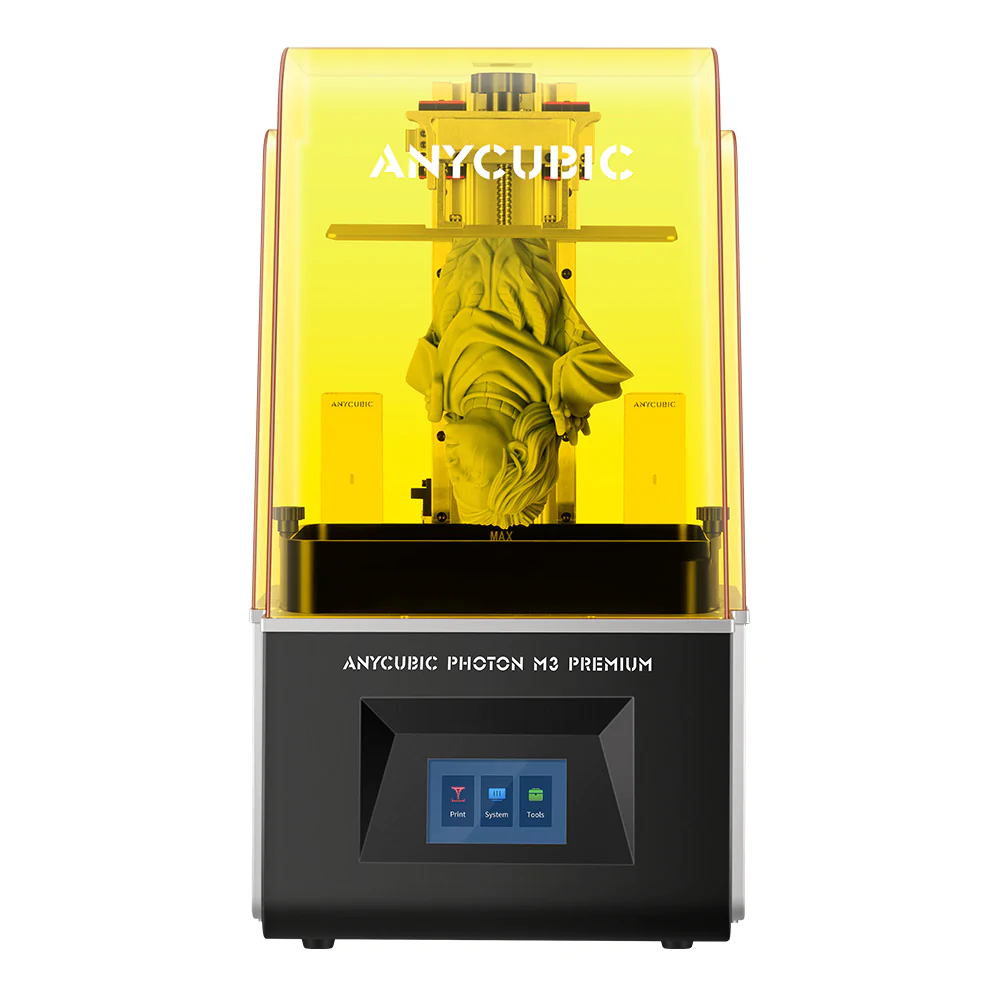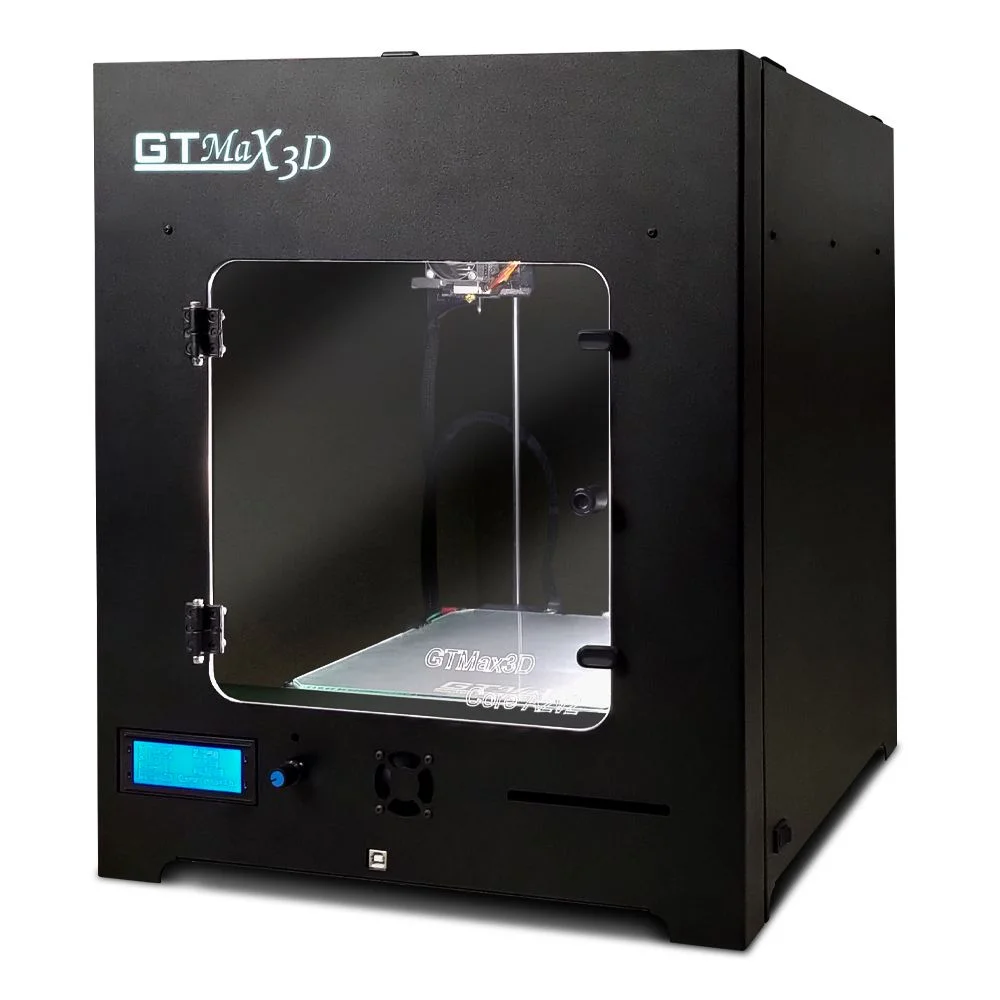Compare Photon M3 Premium vs Core A2V2
Comparison between the best 3D printers
Choose the best 3D printer at the best price. The cheapest 3D printers are here.
Buy a 3D printer here with 3D Fila.
 |
 |
|
| Model | Photon M3 Premium[BUY Photon M3 Premium] |
Core A2V2 |
| Printing Material | Resin | Filament |
| Buy Resin for Anycubic Photon M3 Premium | Buy Filament forGTMax Core A2V2 | |
| Estimated price | $600,00 | $684,00 |
| Manufacturer | Anycubic | GTMax |
| Release Year | 2022 | 2019 |
| Print Volume [mm] | 123x219x250 | 220x220x240 |
| Printer Size [mm] | 330x350x630 | 425x460x512 |
| Weight [kg] | 19 | |
| Power Loss Recovery | NO | YES |
| Maximum Resolution [mm] | 0,01 | 0,05 |
| Processor | ||
| Display | Display touchscreen 4,3'' | Mono |
| Power Supply | 150 W | |
| Connectivity | USB / Wi-Fi | SD / USB |
| Operating systems | Windows, Mac, Linux | |
| Date of registration in the system | 2023-01-19 | 2022-11-12 |
| Release date | 2022 | 2019 |
| Extra features | The Anycubic Photon M3 Premium Printer features MSLA technology with a 10-inch monochrome LCD screen and 8K resolution, ensuring prints with fine details thanks to the 28.5 micron resolution. It has a generous build volume (219 x 123 x 250 mm), an intelligent cooling system for greater durability, and a laser-etched build plate for better adhesion. It offers dual air filters, reducing odors, and the promise of compatibility with the Anycubic Cloud app. Its design includes an Art Deco-style UV curved glass and an efficient leveling system for the build platform. | The GTMax3D ProCore A2v2 is a compact and robust 3D printer with a printing area of ??220 x 220 x 240 mm. It offers high print quality, ranging from 0.05 mm to 0.32 mm. Its features include automatic filament detection and changing, travel speed of up to 300 mm/s, and a heated aluminum bed with a glass top. It has automatic bed leveling with 16 points and an all-metal hotend that reaches up to 298°C. The printer has a carbon steel frame with electrostatic painting, is automatic bivolt and has connectivity via USB and SD card. The Bowden system and core xy kinematics complete its advanced features. |
| Support for multiple colors and materials (AMS and CFS) | NO | NO |
Notes * |
||
| Cost-benefit | 7 / 10 | 6 / 10 |
| Hardware | 3 / 10 | 2.5 / 10 |
| Tela | . | . |
| Print volume | 3 / 10 | 3 / 10 |
| Performance | 9 / 10 | 1 / 10 |
| [BUY Photon M3 Premium] |
Conclusion |
| In comparing the Anycubic Photon M3 Premium and the GTMax Core A2V2, several key aspects emerge that can guide a purchasing decision based on price, features, and overall performance. The Photon M3 Premium, with its advanced MSLA technology and impressive 8K resolution, offers superior print quality and fine detail due to its 28.5 micron resolution. Its features such as intelligent cooling, dual air filters, and compatibility with the Anycubic Cloud app enhance the user experience, making it an ideal choice for those prioritizing high-quality resin printing. The printer’s compact size and thoughtful design elements, like the laser-etched build plate, contribute to its strong performance score. Conversely, the GTMax Core A2V2 shines in terms of its larger print volume, making it more versatile for diverse project sizes. While its print quality lags behind that of the Photon M3 Premium, it compensates with a robust build and faster travel speed. Features such as automatic bed leveling and a durable frame add practical value, though its overall performance rating suggests it may not meet the same precision levels required by detail-oriented projects. Cost-effectiveness also plays a vital role in this comparison. The Photon M3 Premium displays a better cost-benefit ratio, reflecting its advanced capabilities at a more accessible price. Meanwhile, the Core A2V2, while slightly more expensive, does not necessarily offer proportional advantages—particularly in performance. Thus, if the priority is exceptional print quality, detail, and innovative features, the Anycubic Photon M3 Premium stands out as the superior choice. However, for users in need of larger build sizes and certain practical functionalities, the GTMax Core A2V2 remains a solid option, albeit at the expense of overall print performance. The choice ultimately hinges on the specific printing needs and budget constraints of the user. |

